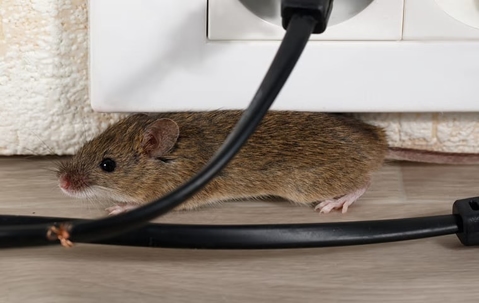Are you hearing unsettling scratches, finding mysterious droppings around your home, and wondering if you have unwelcome rodent visitors? Awareness of this rising issue can shield your house from damage and protect your health. Let's demystify the reasons behind increased rodent activity in cold weather, find out why they infiltrate homes, identify common warning signs, and explore effective strategies for rodent control in Phoenix.
Why Rodent Problems Increase In Winter
When winter rolls in, a warm, cozy home can become a paradise for Arizona rodents seeking refuge from the freezing temperatures. Rodents, like rats and mice, are warm-blooded mammals. So, they naturally dislike the cold and instinctively seek warm shelter, ample food, and protection from predators.
Interestingly, biology also plays a part. Rodent reproduction rates soar in winter, leading to an increase in their population. Food scarcity during cold months pushes these tiny invaders into our homes for a meal.
The double whammy of stark weather conditions and biologically driven population growth makes winter a prime time for rodent infestations. Understanding this pattern can help homeowners take preventive measures, ensuring that their home doesn't serve as a winter resort for rodents.
How Rodents Get Inside Homes
Rodents, despite their size, are sly and adept invaders. They are skilled climbers and diggers, able to scale vertical walls or burrow deep into the ground. Their flexible skeletons allow them to squeeze through tiny holes as small as a quarter, which can unfortunately be quite common in houses.
They often infiltrate homes through openings in the exterior, such as holes in roof vents, gaps in windows or doors, cracks in foundations, or even sewer pipes. Even minor building imperfections can provide an access point for all rodents.
Remember, rodents seek access, food, and warm shelter. Their prime targets are areas like garages, attics, and basements that offer seclusion and proximity to stored food or garbage. Awareness of these vulnerabilities can significantly help in rodent-proofing your home.
Where Rodent Damage And Warning Signs Are Most Common
Signs of a rodent infestation may not always be visible in plain sight, as they can be secretive invaders. Knowing the most common places they leave evidence can help you confirm their presence. Listed below are locations where rodent signs and damage are typical:
- Kitchens and Pantries: These areas often show signs of rodent activity due to food availability. Look for droppings or signs of gnawing on food packages.
- Attics and Basements: These darker, less frequented areas make ideal nests. Check for shredded insulation or fabric, which could indicate nesting.
- Inside Walls and Ceilings: Scratching or skittering sounds can suggest rodents moving within these hidden channels.
- Garages or Sheds: Often housing discarded items and occasional food, these areas might have chewed material or droppings.
- Behind Appliances: Warm spots like behind the refrigerator or oven attract rodents. Check for droppings or gnawed electrical cables.
Inspecting these areas regularly for signs of rodent infestation is important so you can take action quickly if necessary.
The Best Rodent Control Method In Phoenix
If you live in Phoenix, you've likely had to deal with rodents at some point. DIY solutions can offer temporary relief but may not address the root cause of the infestation. At Protection Termite, our effective rodent control solutions tackle your pest problems head-on, ensuring long-lasting peace of mind.
Phoenix's unique desert climate creates a demanding habitat, and rodents are always seeking the comfort of human structures. Our team of experienced professionals understands the region's specific challenges and leverages the most effective techniques to defend your home.
For the best local rodent control experience in Phoenix, trust Protection Termite to bring you, your family, and your home the protection you deserve.

